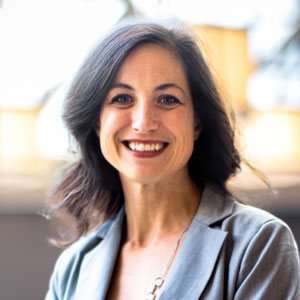The argument for "bodily autonomy" was once a rallying cry for the proponents of Roe v. Wade. The case, decided in 1973 and overturned in 2022, established a legal precedent that sought to eliminate government regulation over what was framed as simply "a woman’s body." This principle became a cornerstone of pro-abortion advocacy, ostensibly protecting an individual’s right to privacy and freedom from governmental interference. Yet, today, in places like the United Kingdom and elsewhere, a chilling paradox is unfolding: while the regulation of physical autonomy is vehemently opposed, the regulation—and criminalization—of one’s innermost thoughts, such as silent prayer, is becoming a stark reality.
Recent cases in the UK have revealed an unsettling trend: individuals have been arrested or fined for silently praying in so-called "buffer zones" near abortion facilities. These buffer zones, designed to prevent protests or harassment, extend their reach to prohibit even non-verbal acts of prayer, regardless of whether anyone else is aware they are occurring. This means that the very essence of personal thought—what happens in the privacy of one’s own mind—is now subject to government scrutiny and control.
This contradiction exposes the inconsistencies within the modern application of "autonomy." On one hand, proponents of unrestricted abortion argue that no government or entity should have the right to dictate what a person does with their body. On the other hand, these same advocates often endorse laws that effectively criminalize peaceful expressions of conscience, even when those expressions are entirely silent and internal.
[Click here to subscribe to Pregnancy Help News!]
The philosophical inconsistency is clear. How can a society champion the right to bodily autonomy while simultaneously denying the most fundamental autonomy of all—freedom of thought? This paradox reveals a deeper issue: the modern interpretation of rights often prioritizes one set of freedoms while disregarding another, creating a hierarchy that deems some liberties expendable for the sake of others.
The regulation of silent prayer in public spaces is not just an attack on religious freedom; it sets a dangerous precedent for the broader erosion of individual rights. If governments can police what people think or silently believe, what’s next? Will private political beliefs become grounds for surveillance or widespread threat of arrest?
Tweet This: The regulation of silent prayer in public spaces is an attack on religious freedom and sets a dangerous precedent for individual rights.
This chilling scenario should concern even those who do not hold religious convictions. The right to think, believe, and express oneself—whether through speech, prayer, or silence—is foundational to a free society. Once this right is compromised, the domino effect of assault on other freedoms is inevitable.
The issue at hand is not merely about prayer or abortion but about the principles that make up a truly free society. If we are to defend and have autonomy, it must be done consistently. The right to bodily autonomy and the right to freedom of thought are not mutually exclusive; they are complementary. To uphold one while suppressing the other is to undermine the very fabric of liberty.
As societies around the world grapple with these issues, it is important to recognize the dangers of trading one set of freedoms for another. True autonomy means allowing individuals the space to act—and think—according to their conscience, free from unwarranted government interference.
In the end, the paradox of Roe v. Wade and the criminalization of silent prayer in the UK is not merely a debate about laws or rights—it is a matter of understanding true freedom. Genuine liberty respects the dignity and worth of every human being, including the unborn child, whose right to life is foundational. A society that values freedom cannot selectively defend some rights while trampling others. To preserve justice, we must protect not only physical autonomy but also the right to think, pray, and act in ways that honor and respect the inherent value of every life.
Editor's note: Andrea Trudden is the Vice President of Communications and Marketing at Heartbeat International, which manages Pregnancy Help News.







